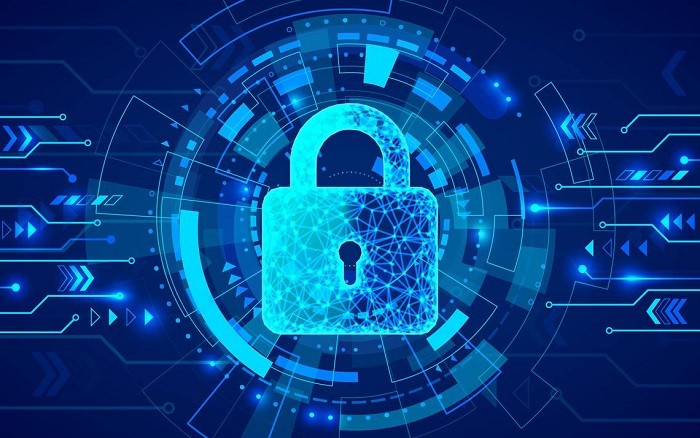In today’s digital age, eCommerce has revolutionized how businesses operate, offering convenience, accessibility, and a global reach. However, this online revolution also brings significant cybersecurity risks. With vast amounts of sensitive customer data—such as payment information, personal details, and login credentials—at stake, eCommerce websites are prime targets for cyberattacks. Ensuring robust cybersecurity measures is not just an option but a necessity for any eCommerce business. This blog will explore the critical importance of cybersecurity for eCommerce websites and provide insights into how businesses can protect themselves from online threats.

1. Protecting Customer Data
Customer trust is the cornerstone of any successful eCommerce business. Consumers expect their personal and financial information to be secure when shopping online. If an eCommerce site suffers a data breach, sensitive customer information such as credit card details, addresses, and contact numbers can be exposed. This not only leads to financial loss for customers but can also cause irreparable damage to a company’s reputation.
Implementing encryption protocols like SSL (Secure Sockets Layer) and ensuring compliance with standards like PCI DSS (Payment Card Industry Data Security Standard) are essential for safeguarding customer data. Strong encryption ensures that even if cybercriminals intercept data, it will be unreadable and unusable.
2. Preventing Financial Loss
Cyberattacks like ransomware, phishing, and Distributed Denial of Service (DDoS) attacks can lead to significant financial losses. For eCommerce businesses, a DDoS attack can result in website downtime, causing missed sales opportunities. Meanwhile, ransomware attacks could cripple operations by locking critical business systems until a ransom is paid.
Apart from the direct cost of the attack, businesses also face the expenses of recovery efforts, legal fees, and potential fines for data breaches. According to studies, the average cost of a data breach in 2023 was around $4.45 million, a figure that can devastate small or mid-sized eCommerce businesses. By investing in cybersecurity tools and protocols, businesses can avoid these catastrophic financial consequences.
3. Maintaining Business Continuity
Business continuity is crucial for any eCommerce website. Cyberattacks can disrupt operations, leading to lost revenue, customer dissatisfaction, and long-term damage to brand loyalty. Hackers may exploit vulnerabilities to take down an eCommerce site, modify pricing, or tamper with customer orders. These disruptions can be especially damaging during peak shopping seasons like Black Friday or Cyber Monday, where every minute of downtime can result in substantial losses.
To minimize these risks, businesses should implement regular security audits, develop an incident response plan, and ensure backups are in place. Cloud-based security services and redundancy systems can help maintain uptime even in the event of an attack.
4. Safeguarding Reputation
In the competitive world of eCommerce, brand reputation is everything. Consumers are increasingly wary of online security, and any hint of vulnerability can drive customers away. A security breach can tarnish a company’s image, causing customers to lose faith in its ability to protect their information. Even worse, news of the breach may spread on social media, amplifying the damage and deterring new customers from visiting the site.
Building a strong security foundation can enhance a business’s reputation by showcasing its commitment to customer safety. Prominently displaying trust badges, SSL certifications, and adhering to industry standards boosts customer confidence and encourages them to complete their purchases.
5. Compliance with Legal and Regulatory Requirements
Various legal and regulatory requirements mandate that businesses, especially those in the eCommerce industry, protect customer data. Regulations such as the GDPR (General Data Protection Regulation) in Europe and the CCPA (California Consumer Privacy Act) in the U.S. impose strict guidelines on how personal data is collected, stored, and processed.
Failing to comply with these regulations can result in significant penalties and legal action. Companies that violate GDPR regulations can face fines of up to 4% of their annual global revenue or €20 million (whichever is higher). Compliance with these laws is essential not only to avoid fines but also to establish trust and credibility with international customers.
6. Mitigating the Risk of Fraud
eCommerce websites are frequent targets for fraudulent activities like identity theft, credit card fraud, and account takeovers. Fraudsters may use stolen credit card details to make purchases or employ phishing attacks to trick users into revealing their login credentials. This not only causes financial harm to customers but can also result in chargebacks, costing eCommerce businesses both time and money.
Fraud detection systems, multi-factor authentication (MFA), and AI-driven security tools can help detect and prevent fraudulent activities. Regularly updating software, employing firewalls, and monitoring traffic for suspicious activity are critical in reducing the risk of fraud.
7. Building Consumer Trust and Confidence
When consumers shop online, they are placing their trust in the business to keep their data secure. Businesses that invest in cybersecurity not only protect themselves but also show their customers that they are serious about security. Displaying trust signals like HTTPS in the URL, security badges, and third-party endorsements can reassure customers that the website is safe to use.
Conclusion
Cybersecurity is more than a technical requirement for eCommerce businesses—it’s an essential component of building trust, ensuring financial stability, and protecting business continuity. As cyberattacks grow more sophisticated, it’s critical that eCommerce websites adopt a proactive approach to cybersecurity. By implementing robust security measures, businesses can protect sensitive data, prevent financial losses, and maintain a positive brand reputation, ensuring long-term success in the digital marketplace.


No responses yet